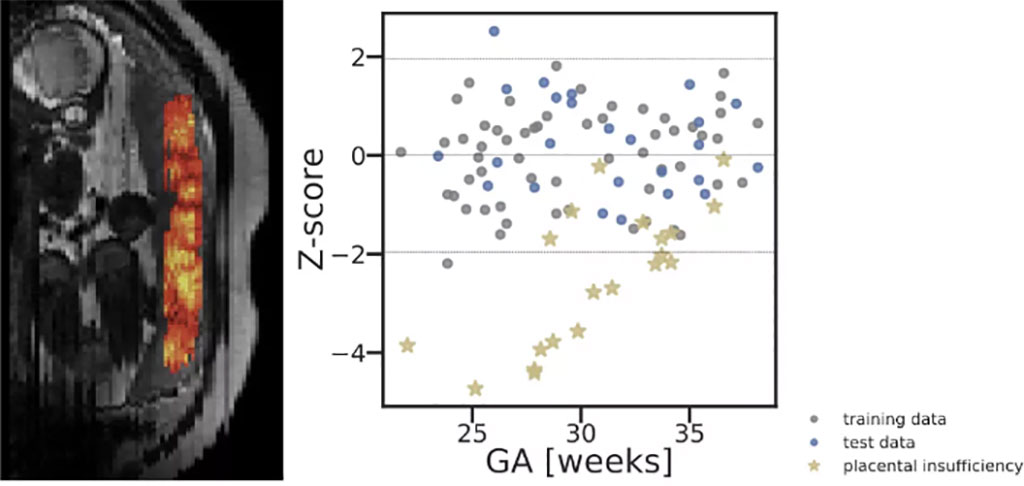Combining Artificial Intelligence with 30 Second MRI Scan Predicts Health of Placenta
By MedImaging International staff writers
Posted on 27 Aug 2021
Researchers have proposed a machine learning method that predicts the health of the placenta from a 30 second MRI scan. Posted on 27 Aug 2021
The algorithm developed by researchers from the School of Biomedical Engineering & Imaging Sciences at King's College London (London, UK) models the normal distribution of placental tissue properties which can be used to screen for deviations from normal placental ageing and signs of pregnancy complications. The researchers use this method to detect pre-eclampsia, a condition that affects 4 to 7% of pregnancies with significant mortality and morbidity for both mother and child. The 30 second scan together with the automatic pipeline can easily be included in any fetal MRI examination and allows obtaining additional, previously not available information leading to better treatment and information.

Image: Combining Artificial Intelligence with 30 Second MRI Scan Predicts Health of Placenta (Photo courtesy of King`s College London)
According to the researchers, detecting pre-eclampsia is essential to achieve optimal monitoring and thus the best possible outcome. The method is most sensitive early in the second half of pregnancy which is also the typical time of onset of pre-eclampsia. This allows early detection and monitoring of this complication. The machine learning pipeline automates manual segmentation of the placenta, which can take up to one hour per case, and uses data-driven models to define normal intervals of tissue properties within the placenta. This new technique is fast and removes any laborious steps. At the same time, it uses human-inspectable and interpretable intermediate representations of the data, keeping clinicians in the loop and allowing optional corrections and alleviating issues related to black-box algorithms for clinical decision making. Also, incorporating the uncertainty associated with the data in the model improves the method’s ability to assign lower health scores to high-risk placentas (AUC ROC) from 69% to 95%.
“This method develops a clinical marker and automates its extraction which would otherwise be prohibitively time-consuming in clinical practice,” said Dr. Maximilian Pietsch, Research Associate, School of Biomedical Engineering & Imaging Sciences. “The validation on an independent clinical cohort with MRI data acquired at a different field strength shows that it can be a valuable clinical tool.”
Related Links:
King's College London













